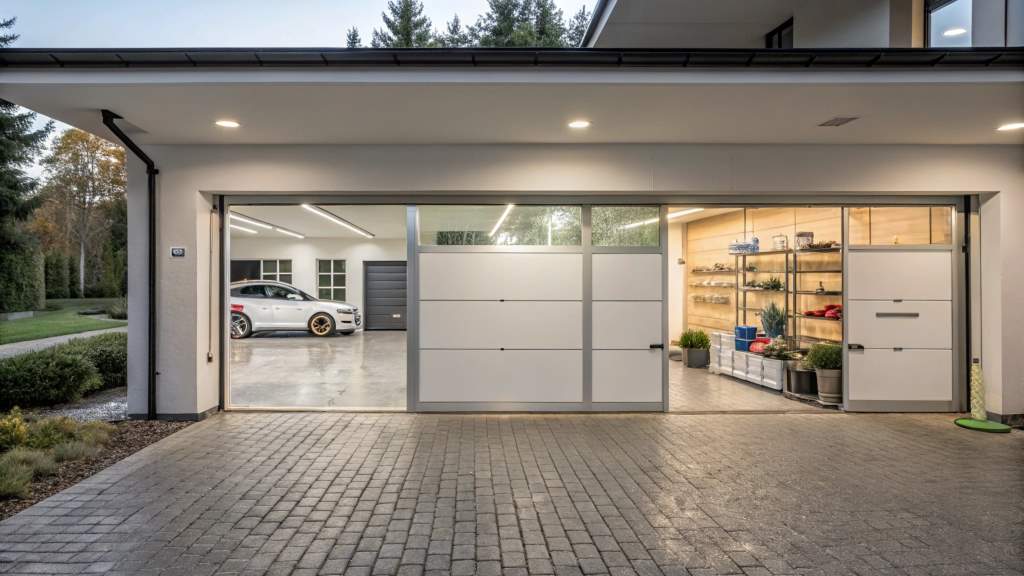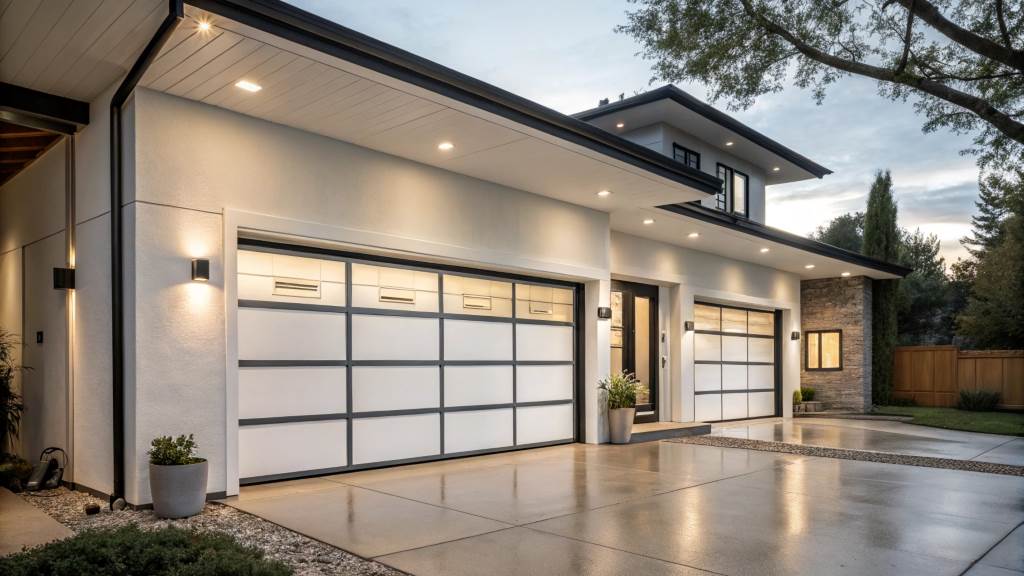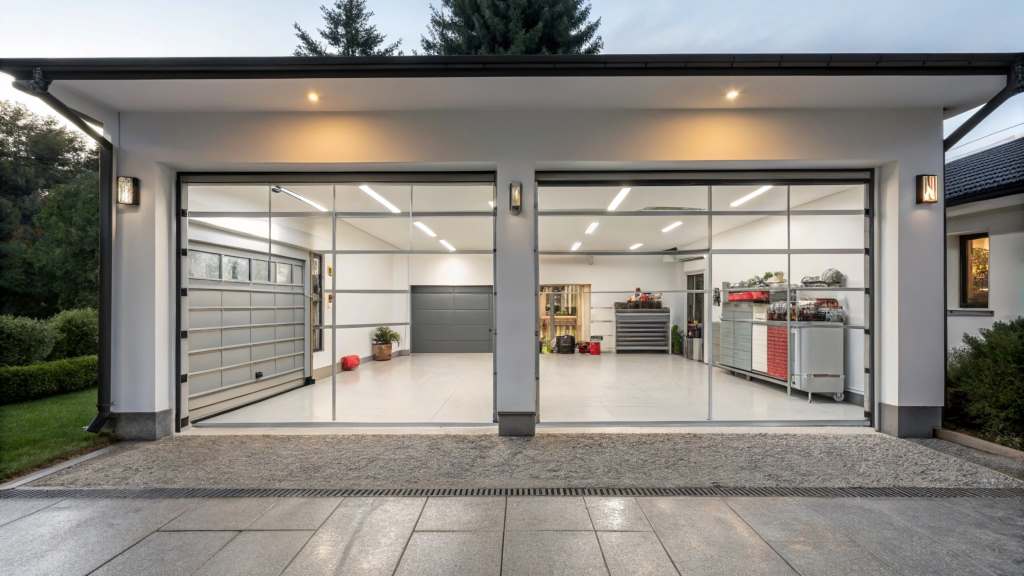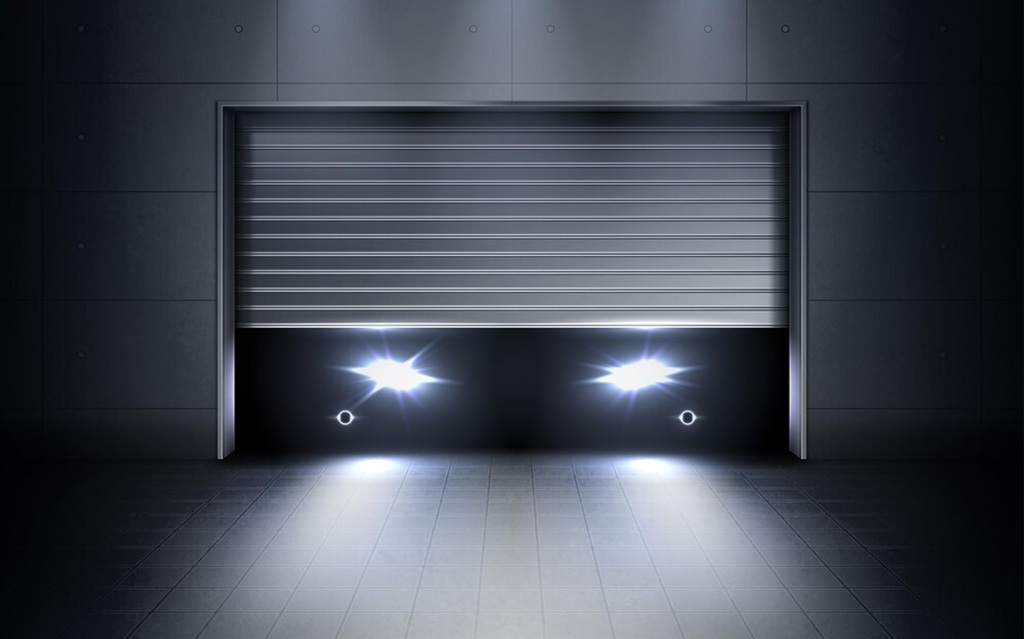In today’s world, where convenience and innovation often take center stage, self-cleaning garage doors have emerged as a game-changer for homeowners. These doors use advanced technologies to minimize dirt buildup, saving time and effort. However, are they the right choice for everyone? Let’s explore their pros and cons, dive into their workings, and help you decide whether this smart upgrade aligns with your needs.
What Are Self-Cleaning Garage Doors?
Self-cleaning garage doors are equipped with specialized coatings or mechanisms that repel dirt, grime, and moisture, keeping the surface clean without manual intervention. Often, they use hydrophobic materials or sensors that activate a cleaning cycle. While the concept sounds futuristic, it’s increasingly becoming a practical addition to smart homes.
Advantages of Self-Cleaning Garage Doors
1. Time-Saving Convenience
With a self-cleaning garage door, you no longer have to spend hours scrubbing or hosing down dirt. According to Smart Home Magazine, homeowners save up to 30 hours annually by avoiding manual cleaning tasks. For busy professionals and families, this feature is a significant plus.
2. Long-Term Cost Efficiency
While these doors might have a higher upfront cost, the reduced need for cleaning supplies and services balances the expense over time. A report by the Home Improvement Research Institute suggests that homeowners can save approximately $200 annually on cleaning services.
3. Enhanced Durability
The protective coatings used on these doors not only repel dirt but also reduce wear and tear caused by environmental factors like UV rays and rain. Over time, this feature extends the life and size of the garage door, offering a better return on investment.
4. Eco-Friendly Solution
Using less water and fewer cleaning agents makes self-cleaning garage doors an environmentally friendly option. A survey by the Green Building Alliance shows that 40% of homeowners prefer sustainable home upgrades, making these doors an attractive choice for eco-conscious individuals.
5. Aesthetic Appeal
A perpetually clean garage door enhances the curb appeal of your property. If you’re planning to sell your home, this feature could be a unique selling point, potentially boosting the home’s value by up to 5%, according to real estate experts at Zillow.
6. Reduced Maintenance Efforts
Traditional garage doors require regular scrubbing to prevent dirt buildup. Self-cleaning models, however, eliminate this hassle, freeing up time and energy for other priorities.
7. Cutting-Edge Technology for Modern Homes
Integrating smart cleaning features aligns with the trend of automation, making these doors a perfect fit for smart homes. According to Statista, smart home device usage is expected to grow by 25% in the next three years.
Disadvantages of Self-Cleaning Garage Doors
1. High Initial Costs
Self-cleaning garage doors typically cost 20–30% more than conventional ones, according to a study by HomeAdvisor. While they may save money in the long run, the upfront cost can deter budget-conscious buyers.
2. Potential for Malfunctions
Advanced technology brings complexity. Sensors or coatings may degrade over time, necessitating repairs. For instance, issues with hydrophobic coatings can result in uneven cleaning. A homeowner review on Consumer Reports noted occasional sensor malfunctions requiring expensive replacements.
3. Limited Availability of Repairs
Specialized technologies often require expert servicing, which may not be readily available in all areas. A lack of nearby technicians could mean higher repair costs or prolonged downtime.
4. Compatibility Challenges
Retrofitting a self-cleaning mechanism onto an existing garage door might not be feasible, meaning homeowners would need to invest in a completely new setup. This requirement can make the transition challenging.
5. Energy Consumption
Some self-cleaning garage doors use automated mechanisms powered by electricity. While energy consumption is minimal, it may concern homeowners focused on reducing energy bills or carbon footprints.
6. Effectiveness in Extreme Conditions
While these doors work well in moderate climates, extreme conditions like heavy snow or mud may compromise cleaning efficiency. This limitation might make them less suitable for certain geographic regions.
7. Maintenance of the Technology Itself
Ironically, the very mechanisms designed to simplify cleaning may require occasional maintenance or replacements, adding an extra layer of responsibility for the homeowner.
These doors are ideal for urban areas where pollution and dust levels are high. They’re also perfect for homeowners who prioritize automation or sustainability. Notable brands like Clopay and LiftMaster have begun integrating such features, making them widely accessible.
How to Choose the Right Self-Cleaning Garage Door
When deciding on a self-cleaning garage door, consider the following factors:
- Budget: Weigh upfront costs against long-term savings.
- Climate: Determine if the technology is effective for your local weather.
- Brand Reputation: Opt for trusted manufacturers like Wayne Dalton or Amarr.
- Technology Support: Ensure technicians are available locally for servicing.
FAQs
What materials are used in self-cleaning garage doors?
These doors often use hydrophobic coatings made from nanotechnology or advanced polymers to repel dirt and moisture effectively.
Do self-cleaning garage doors increase property value?
Yes, they can enhance curb appeal and are considered a modern, desirable feature that may increase property value.
Are these doors energy efficient?
While they use minimal energy for sensors and cleaning mechanisms, their impact on overall energy consumption is negligible.
What happens if the self-cleaning mechanism fails?
In such cases, the door can still function manually, but repairs may be necessary to restore its automated features.
How often do these doors require maintenance?
Most self-cleaning garage doors require minimal maintenance, with an inspection recommended every 1–2 years to ensure optimal functionality.
Can I retrofit my existing garage door with self-cleaning features?
Retrofitting is challenging and often not feasible. It’s better to invest in a new, integrated system.
Conclusion
Self-cleaning garage doors are a blend of innovation and convenience, offering substantial advantages like time-saving, reduced maintenance, and enhanced aesthetics. However, they’re not without challenges, such as high initial costs and occasional malfunctions. For homeowners seeking to modernize their homes while prioritizing sustainability, these doors could be a perfect match. As technology evolves, their accessibility and efficiency are likely to improve, making them an exciting prospect for the future of smart homes.







